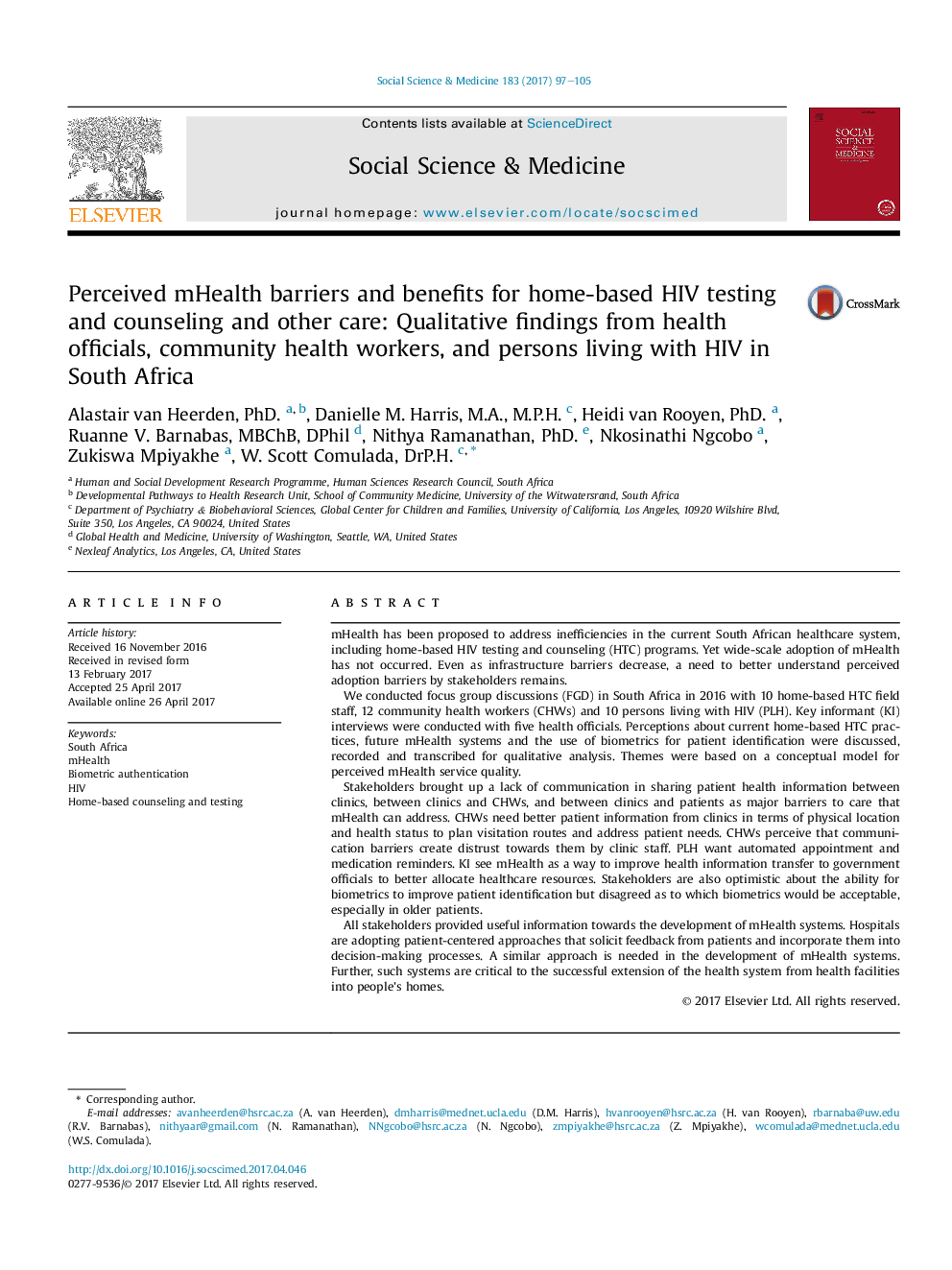| کد مقاله | کد نشریه | سال انتشار | مقاله انگلیسی | نسخه تمام متن |
|---|---|---|---|---|
| 5046556 | 1475986 | 2017 | 9 صفحه PDF | دانلود رایگان |

- Input from South African stakeholders about future mHealth programs and biometrics.
- Officials feel mHealth will improve information exchange and resource allocation.
- Community health workers feel mHealth will increase trust with clinic staff.
- Persons living with HIV want appointment reminders delivered to their phones.
- Fingerprint scans seen as most viable biometric identification solution.
mHealth has been proposed to address inefficiencies in the current South African healthcare system, including home-based HIV testing and counseling (HTC) programs. Yet wide-scale adoption of mHealth has not occurred. Even as infrastructure barriers decrease, a need to better understand perceived adoption barriers by stakeholders remains.We conducted focus group discussions (FGD) in South Africa in 2016 with 10 home-based HTC field staff, 12 community health workers (CHWs) and 10 persons living with HIV (PLH). Key informant (KI) interviews were conducted with five health officials. Perceptions about current home-based HTC practices, future mHealth systems and the use of biometrics for patient identification were discussed, recorded and transcribed for qualitative analysis. Themes were based on a conceptual model for perceived mHealth service quality.Stakeholders brought up a lack of communication in sharing patient health information between clinics, between clinics and CHWs, and between clinics and patients as major barriers to care that mHealth can address. CHWs need better patient information from clinics in terms of physical location and health status to plan visitation routes and address patient needs. CHWs perceive that communication barriers create distrust towards them by clinic staff. PLH want automated appointment and medication reminders. KI see mHealth as a way to improve health information transfer to government officials to better allocate healthcare resources. Stakeholders are also optimistic about the ability for biometrics to improve patient identification but disagreed as to which biometrics would be acceptable, especially in older patients.All stakeholders provided useful information towards the development of mHealth systems. Hospitals are adopting patient-centered approaches that solicit feedback from patients and incorporate them into decision-making processes. A similar approach is needed in the development of mHealth systems. Further, such systems are critical to the successful extension of the health system from health facilities into people's homes.
Journal: Social Science & Medicine - Volume 183, June 2017, Pages 97-105